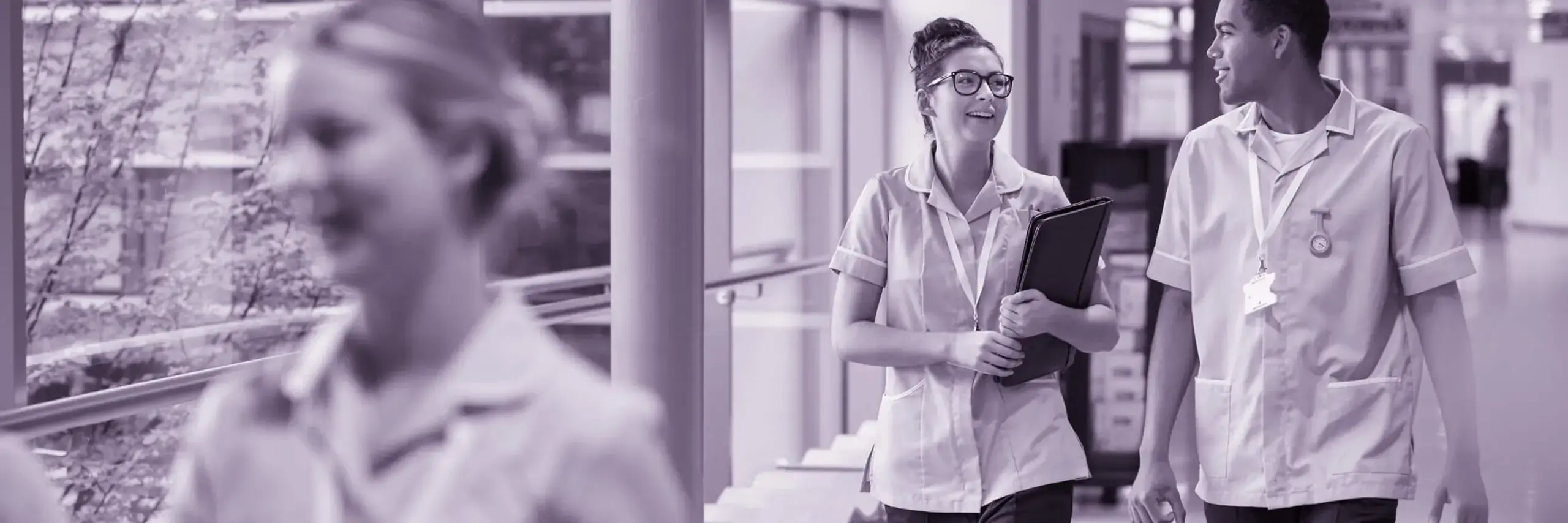Main content
The Covid-19 crisis presents challenge and opportunity for health and care in England
28 Sep 2020
We are living in strange and deeply uncertain times, and it’s fair to say no one could have predicted the vast array of changes and challenges that would land at the NHS’s doorstep, in England and across the UK. No one would have chosen these circumstances, but it’s widely accepted that there’s no going back. Amid all the disruption and despair of the last six months, it’s also been the case that the Covid-19 crisis has proved to be a catalyst for positive change within the NHS. Some of the things we have had to do are of course temporary and must remain so; others are important for the longer term and provide an opportunity to ‘reset’ how we work.
Transformation that might have taken months or even years to be discussed, consulted, planned and implemented took place within days and weeks, as a result of the need to act quickly to protect the public, and thanks to the flexibility and adaptability of our health and care staff. Similarly, of necessity, the public have adapted, making huge changes to their way of life almost overnight, and have largely accepted the reasons and the benefits. The system pulled together in extremely short order, and working in partnership with staff and regulators, the NHS came up with the goods to solve highly complex problems in uncharted territory.
On reflection, we’d of course accept that some actions, such as bringing back staff who had left the NHS and paid student placements, could have been handled differently to improve the experience of those involved. The agencies were working at break-neck pace, faced with the very real threat that the health service would not be able to cope. Of course, we owe a great debt of gratitude to all the ex-staff who came back to the NHS to help their colleagues and care for patients, and they must be celebrated. Meanwhile, the health and care sector is still working with them to discuss how they might be able to help going forward.
Similarly, we must recognise the vital contributions of our student medics, nurses, midwives and allied health professionals, as they worked to do as much as they could to help our teams and patients. This is a true testament to their selflessness and dedication. Had there been more time, there could have been more planning and problems could have been ironed out, and we hope lessons can be learned, documented and implemented for the future, but the scale of achievement in a very short space of time is breath-taking.
The situation has also allowed staff to develop new skills, and improve relationships across multi-disciplinary teams, as demonstrated at Bedfordshire, Luton and Milton Keynes (BLMK) Integrated Care System (ICS), where the Covid-19 response propelled joint working across the NHS, social care and wider public sector teams. We have also seen a growing focus on digital healthcare, with an increase in telehealth, telecare, telemedicine and tele-coaching, which has, in turn, increased productivity, options for the patient, further options for student placements, and allowed flexibility, which supports staff work/life balance.
Above all, the circumstances of the last six months have reminded everyone of the centrality of our people to our services and success. We have been reminded forcefully of people management practices – good and bad – and their importance to our success. The 2020 People Plan reinforces the importance of the offer we must make to our people, and the need to sustain our focus on their wellbeing is recognised and accepted by employers across the NHS. The plan also reinforces how far the NHS still has to go to improve the experience of all our people.
The pandemic has spelled out the facts of the discrimination experienced by generations of our Black and Minority Ethnic (BME) colleagues and their communities. It challenges all employers – national and local – to listen, to learn, and above, all to act. It also challenges the NHS to improve the healthcare experienced by BME communities, and the NHS Confederation is working with NHS England to establish the NHS Race and Health Observatory to ensure that we improve access, experience and outcomes for BME communities in England.
The biggest challenge to staff experience is of course the serious deficits we saw in workforce numbers. This is not to absolve employers of the need to support staff, but it is to stress the importance of properly staffed teams and services, and the challenges long-term vacancies pose. There are some positive signs there, with the recent investment in nursing apprenticeships, for example, welcomed by trusts.
Looking forward, we must maintain the belief that we can achieve positive change in difficult circumstances at great pace. Of course, the current levels of pressure are not sustainable, but the ability to adapt quickly and learn on the move should be encouraged to improve staff experience and patient care. In order to protect the NHS, we must demonstrate we are continually thinking and looking for areas of improvement, and we need regulators to support the new ways of working. NHS organisations must of course also maintain safety to patients and excellence in education for learners, but we await with interest the reflections from professional, service and quality regulators about what they have learned from the pandemic and how their approaches can be improved in the future to deliver ‘right-touch’ regulation for our people and services.


